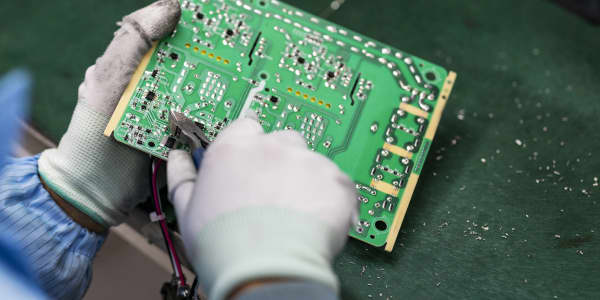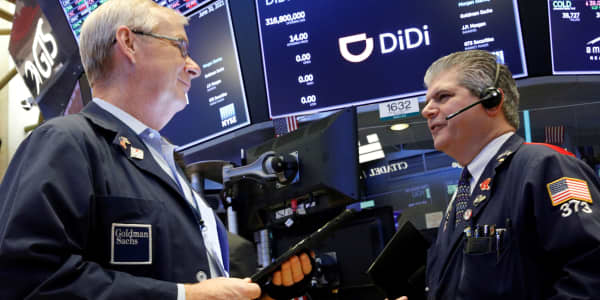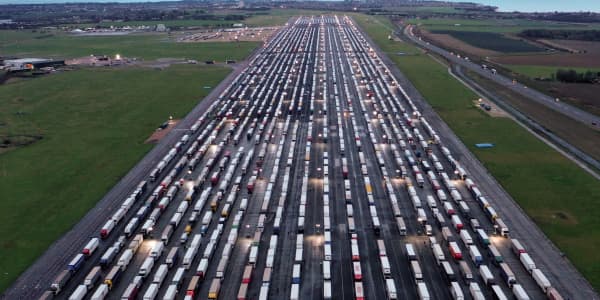As the trade war continues to rumble on between the U.S. and China, businesses will have to decide on which side they choose to align themselves, according to Mikkel Hippe Brun, co-founder of commerce platform, Tradeshift.
Speaking at CNBC's East Tech West conference in the Nansha district of Guangzhou, China, Hippe Brun said Wednesday that he is already seeing companies altering their long-term strategies, even as the outcome of the fight remains unclear.

"Companies need to decide on what side of the tariff world do they want to place themselves: In the U.S., or in China, or do they want to move around the world by outsourcing to other countries?" Hippe Brun told CNBC's Geoff Cutmore and Akiko Fujita.
The Tradeshift executive struck an optimistic tone on the upcoming meeting between U.S. President Donald Trump and Chinese President Xi Jinping at this weekend's G-20 summit. "We could absolutely see progress," said Hippe Brun.
But he noted that the shock has already been felt by businesses, and they have already begun to alter their processes.
"The whole system is preparing itself for this happening again," he said. "The long-term consequences of this are definitely going to be there."
Hippe Brun, who works primarily across Asia Pacific, said China had so far been especially disrupted by the tariff war.
But he also noted that the world's second largest economy is well positioned to take advantage of new trade relationships with emerging economies, for instance via its Belt and Road Initiative — a network of infrastructure projects designed to expand China's economic reach and political influence across several countries.
"With China, they're already prepared themselves for opening up trade with Europe, the Middle East and Africa. China is already in a position where they can shift and adjust and build up new supply chains," he said.
Correction: This story has been updated to accurately reflect Mikkel Hippe Brun's role with Tradeshift.





